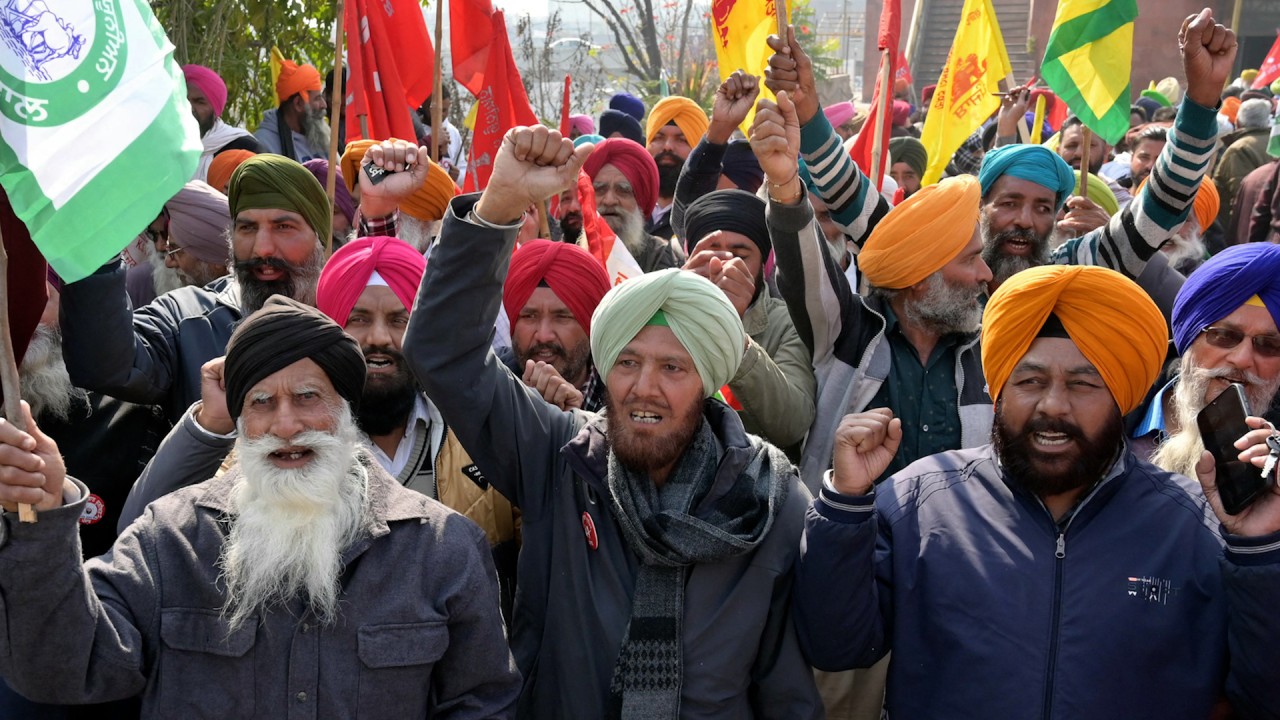Atreya and Madhu also feared landlords could refuse to rent a house to a live-in couple on grounds such as “fraud” or “misrepresentation” after an “inquiry” by the relevant authorities.
“Another thing we fear is that in strict families where there is opposition, especially in the case of interfaith and inter-caste marriages, this law can be weaponised, as the complaint can be lodged by even vigilante neighbours,” they said.
India’s trade unions question need for more workers in Israel amid war
India’s trade unions question need for more workers in Israel amid war
The bill defines a live-in relationship as one between a man and woman cohabiting “in a shared household through a relationship in the nature of marriage”.
Under the proposal, partners in a live-in relationship must submit a statement to the registrar, who will conduct a summary inquiry within 30 days. The registrar also forwards live-in relationship statements to local police and informs parents if either partner is under 21. A registration can be rejected if one partner is married, a minor, or if consent to the relationship is obtained through coercion or fraud.
Failure to submit live-in relationship declarations or providing false information could land one in jail for three months, a fine of 25,000 Indian rupees (US$300), or both.
Uttarakhand is not the only state pushing for a uniform civil code, with Assam, another BJP-ruled state announcing plans to implement similar rules later this year.
Will demolition of New Delhi historic mosque fan India’s Hindu-Muslim divide?
Will demolition of New Delhi historic mosque fan India’s Hindu-Muslim divide?
Live-in relationships are becoming more common in urban India as dating couples relocate for better job opportunities and live far from their parents though cultural taboo, society disapproval and parental pressures against such lifestyles exist.
In 2012, a Supreme Court judge said live-in relationships were “a fad that is visible only in urban areas”.
According to a 2023 survey by Lionsgate Play conducted among 1,000 Indians, one in two Indians thought that living together was important to understand their partner better before they get married.
“The intimate lives of Indians have always been monitored – by caste groups, families, parents and patriarchal norms, landlords and residents’ associations, and by nosy neighbourhood uncles and aunties,” said Nikita Sud, professor of the politics of development at the University of Oxford.
“Earlier, the state was drafted to further police our love lives, marriages, choice of partner – at the behest of these self-appointed societal guardians. Now the state is stepping deeper into the nosy neighbourhood uncle-auntie role, sanctioned by law. This will be projected as for our good, and to prevent the exploitation of women, in particular.”
Naveed Mehmood Ahmad, a resident fellow at thinktank Vidhi Centre for Legal Policy, said live-in relationships had been slowly recognised by the law in recent years to some extent but the latest proposal was problematic in that the state was interfering with what was essentially a private choice.
“The whole point of a live-in relationship is that it’s not as rigid as marriage which needs registration, et cetera. The need for a law to regulate this by the state does not seem to have any valid rationale. Also, the move to criminalise this if there is a delay or failure in registration is problematic, as criminal law is invoked for concerns of national security or public order, which is not applicable here.”
Some experts say the rationale behind the law seems to be the protection of women, following recent reported cases in which women in live-in relationships had been abused but others say this can happen even when two people are married.
After the brutal murder of Shraddha Walkar in New Delhi by her live-in partner in 2022, a BJP MP called for a law against the “dangerous disease” of such relationships.
India’s drag artists share inclusive messages of gender equality in schools
India’s drag artists share inclusive messages of gender equality in schools
Ravi Arora, a law student in Delhi, said he thought the UCC was needed to bring all religious communities under the same set of personal laws but there was no reason to make laws about live-in relationships.
“Of course, for partners [especially women] to claim maintenance and children to be able to inherit property, registration may help,” he said. “But regulating it and making it a criminal offence [for non-registration], is only moving towards a police state and that’s not a good thing for the country.”
Sud from Oxford said the UCC will “entrench conservatism” in alignment with ultra-conservative Brahmanical and patriarchal Hindu norms.
She added, “This is to the detriment even of the majority of Hindus who belong to a more diverse and open religion. In any case, all Indians should be asking what the state is doing in our bedrooms when it should be focusing on basics like food and agriculture, employment, healthcare, our polluted and under-resourced cities.”


